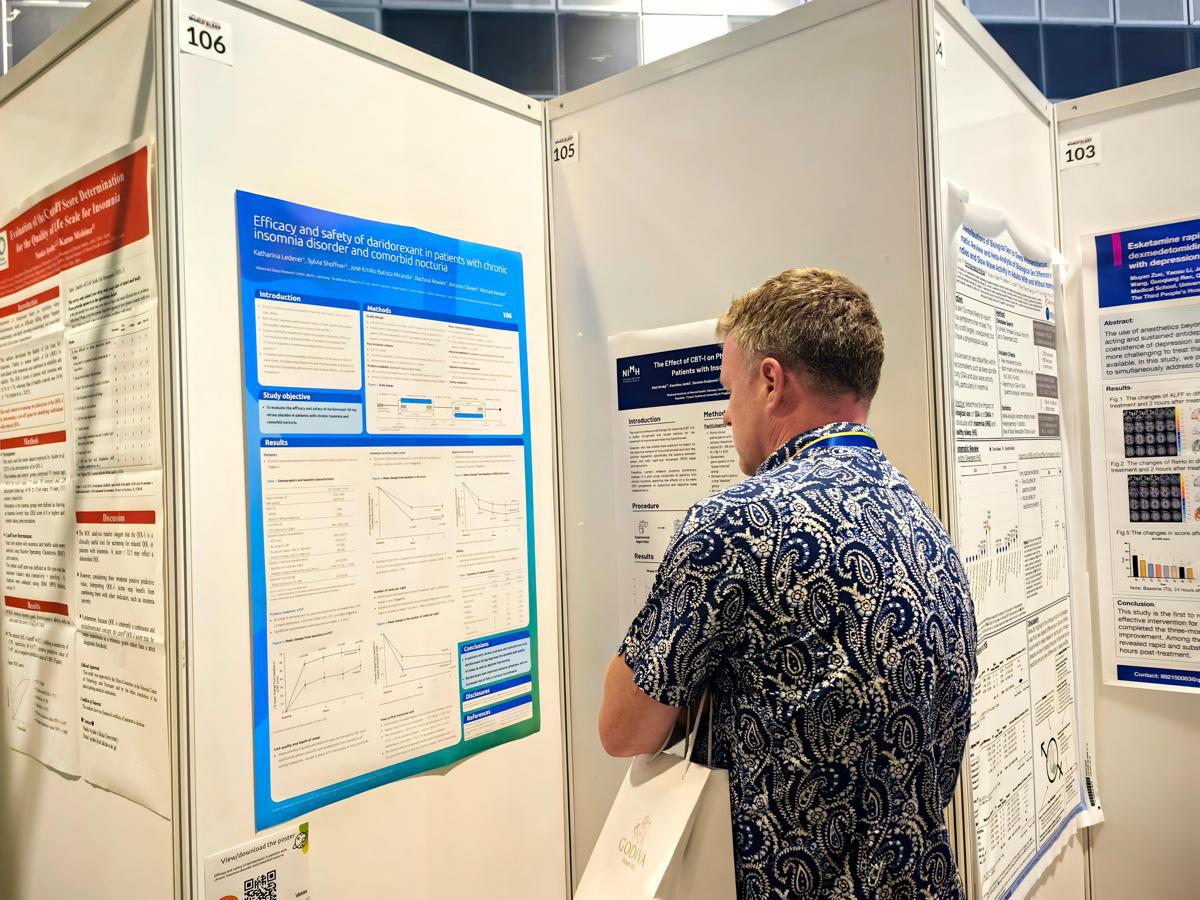New anti-insomnia therapy impresses intl experts


Hong Kong-listed, Nanjing, Jiangsu province-based Simcere Pharmaceutical Group Ltd said that Quviviq, a new-generation anti-insomnia therapy developed in collaboration with Swiss company, Idorsia, has garnered widespread attention from domestic and international experts at the World Sleep Congress, one of the most influential academic conferences in the field of sleep medicine, which concluded in Singapore on Wednesday.
A real-world study led by Claudio Liguori, an expert in systems medicine from Italy, showed that over a 12-month period, the medicine not only improved nighttime symptoms associated with insomnia, but also enhanced daytime functioning in patients.
Liguori also presented the largest analysis to date of clinical characteristics in insomnia patients, which included data from more than 5,000 individuals. His findings indicated that both young and elderly individuals troubled by insomnia have a real need for improved daytime functioning, and insomnia has a more significant impact on daytime activities in young people.
David Neubauer, associate director of the Johns Hopkins Sleep Disorders Center and medical director of the behavioral sleep medicine program at the Johns Hopkins University, said such new therapies are targeted to a particular area of the hypothalamus in the brain, which allows them to regulate the sleep-wake cycle while avoiding the potential adverse effects occurring in many previous types of medications.
"This has been a big improvement in the development of medications to treat insomnia," he said.
Laura Palagini, a psychiatrist at the University of Pisa in Italy and a sleep medicine expert, also called the new drug "a revolution in the treatment of insomnia" after seeing a two-year study showing that patients continued to benefit.
Originally developed in Switzerland and spearheaded by Simcere for clinical development in China, Quviviq was approved in China in June.
Huang Zhili, president of the Chinese Sleep Research Society and a distinguished professor at Fudan University in Shanghai, said the therapy is available in more than 10 countries and regions. "One of its key features is its drug metabolism half-life of about eight hours, which prevents next-day drowsiness and improves daytime functioning," he said.
Han Fang, president of the Asian Society of Sleep Medicine and a professor at Peking University People's Hospital in Beijing, highlighted the massive insomnia population in China and the significant economic burden it places on society.
"There is a huge demand for safe and effective insomnia treatments in clinical practice. We hope the introduction of such new medications will offer better treatment options for insomnia sufferers," he said.
- New anti-insomnia therapy impresses intl experts
- Courts crackdown on online misconduct, emerging business violations
- China's annual IP conference kicks off in Beijing
- CNS Fujian, China's largest aircraft carrier, conducts training operations in South China Sea
- China identifies new critical mineral deposits
- Remains of fallen heroes returned to China




































